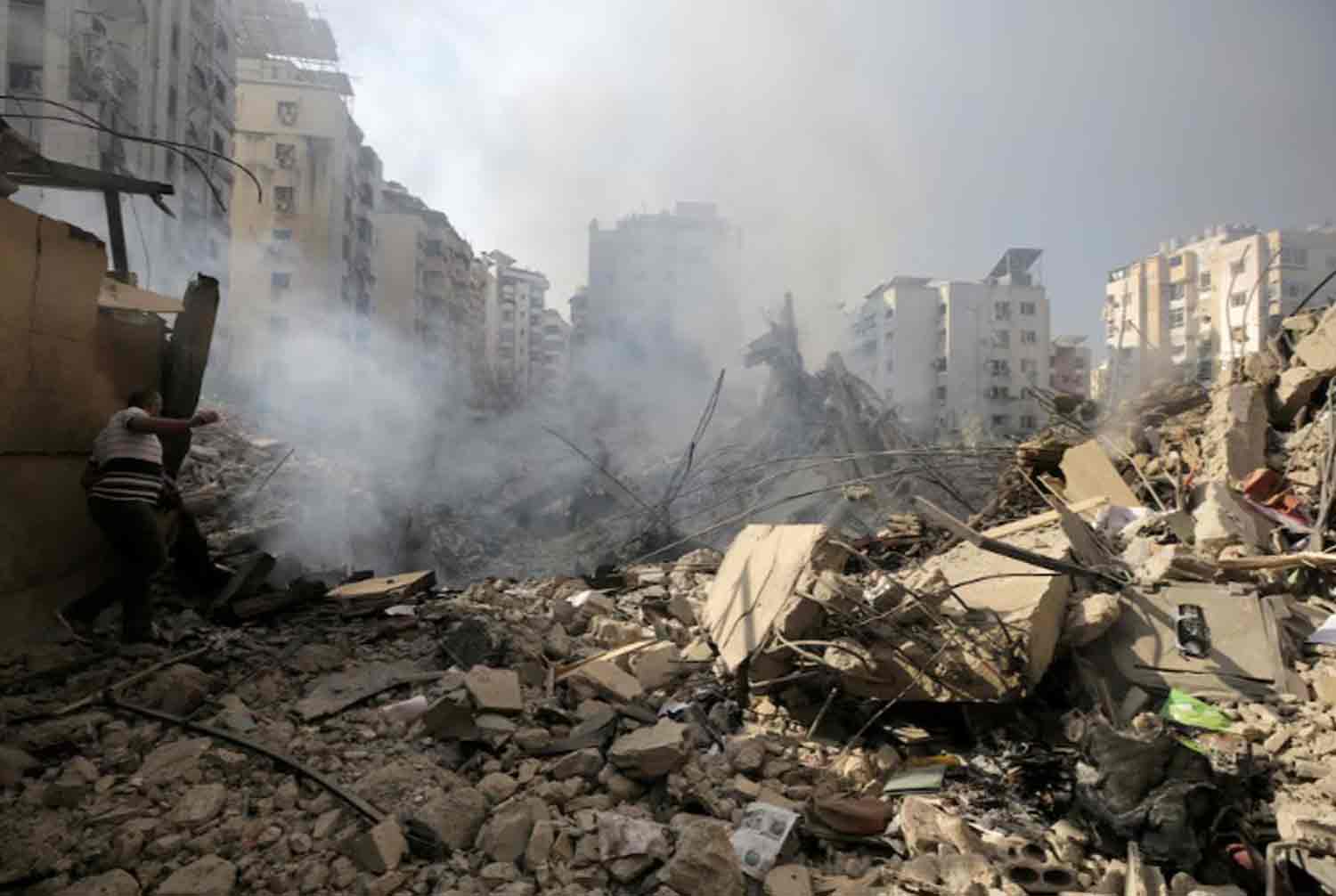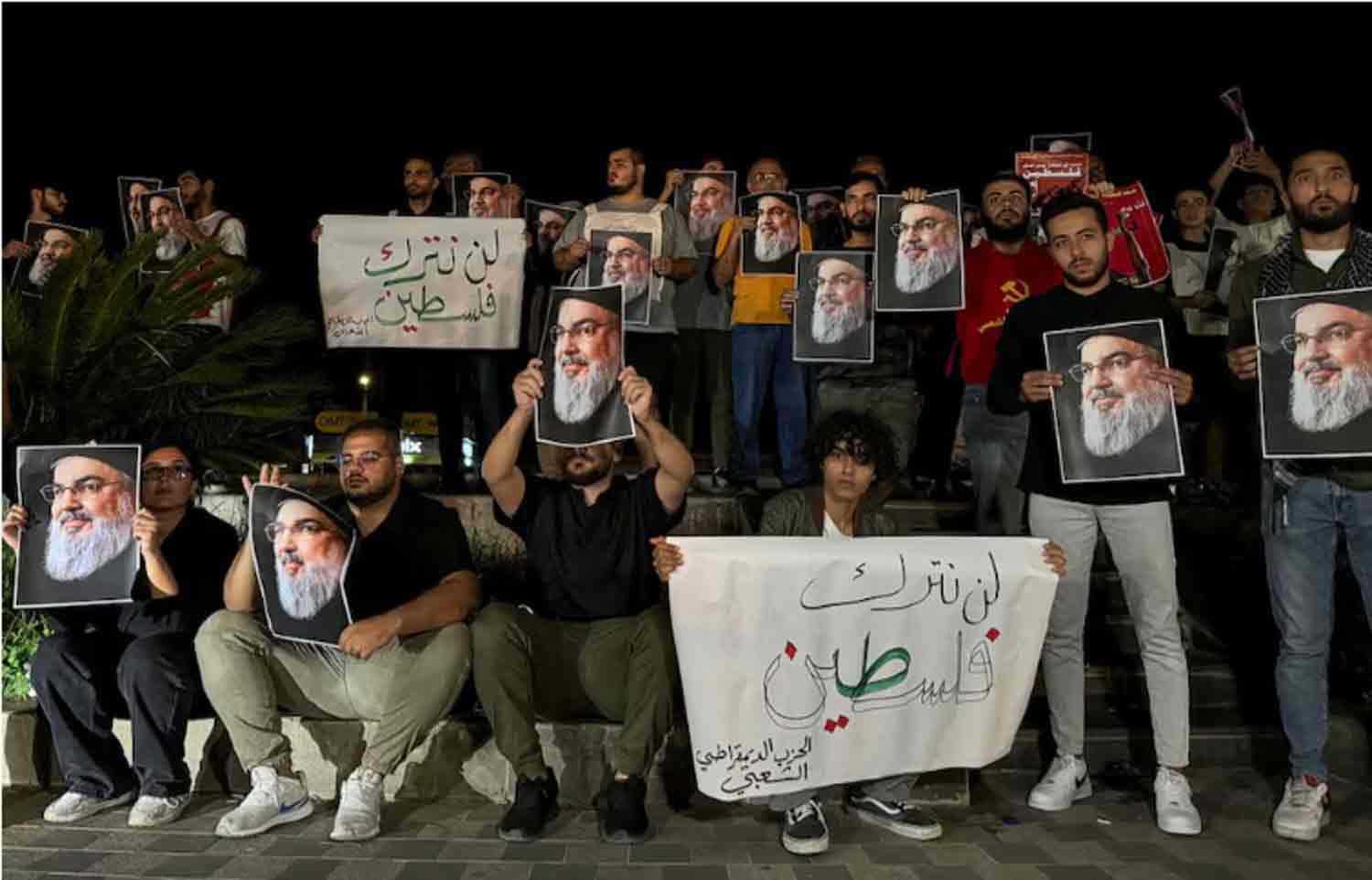Israel conducted a series of strikes on various targets in Lebanon on Sunday, intensifying its offensive against Iran-backed Hezbollah following the significant elimination of the group’s leader, Sayyed Hassan Nasrallah.
The Israeli military reported that its air force targeted numerous Hezbollah positions in Lebanon, including missile launchers aimed at Israeli territory, weapon storage facilities, and other critical Hezbollah infrastructure.
Additionally, the navy intercepted a projectile that was approaching Israel from the Red Sea, while another eight projectiles launched from Lebanon landed in uninhabited areas, as stated in a morning briefing.
Nasrallah was killed during a substantial Israeli airstrike on Friday that targeted the group’s headquarters in the southern suburbs of Beirut. This event marked a significant setback for Hezbollah and Iran, as it removed a key figure who played a crucial role in establishing Hezbollah as a central component of Tehran’s network of allied factions in the Arab region.
Israel announced the death of a prominent figure on Saturday, which was later confirmed by Hezbollah. In their statement, Hezbollah declared their intention to continue hostilities against Israel, launching rockets, including a barrage on Sunday morning.
The death of Nasrallah marked a tumultuous two weeks for Hezbollah, beginning with the destruction of numerous communication devices utilized by its members. While Israel is widely believed to be responsible for this action, it has neither confirmed nor denied involvement.
This escalation has heightened concerns that the conflict may spiral out of control, potentially involving Iran, Hezbollah’s main supporter, as well as the United States. Since the onset of the conflict on October 7, following an attack by the Iran-backed Palestinian group Hamas, Hezbollah and Israel have been engaged in parallel hostilities alongside Israel’s military operations in Gaza.
According to Lebanon’s health ministry, Israeli airstrikes on Saturday resulted in 33 fatalities in Lebanon, raising the total death toll since the outbreak of hostilities on October 8 to over 1,670, including 104 children.
In Beirut, families who have been displaced found refuge for the night on the benches at Zaitunay Bay, an upscale area known for its restaurants and cafes along the waterfront, where private security typically discourages loitering. However, this was not the situation on Sunday morning. Families, equipped with little more than a duffle bag of clothing, had spread out mats to sleep on and were preparing tea for themselves.
“You cannot break us, no matter what you do, no matter how many bombs you drop or how many people you displace – we will remain here. This is our homeland, and we will not leave,” stated Francoise Azori, a local resident jogging through the area.
On Sunday, the United Nations’ World Food Programme announced the initiation of an emergency operation aimed at providing food assistance to as many as 1 million individuals impacted by the ongoing conflict in Lebanon.
balance of power
Israeli Prime Minister Benjamin Netanyahu stated on Saturday that the elimination of Nasrallah was a crucial move towards “altering the balance of power in the region for years to come.” He characterized Nasrallah not merely as a terrorist but as “the terrorist,” cautioning that difficult days lie ahead. Israel confirmed the deaths of senior Hezbollah figure Ali Karaki and other commanders alongside Nasrallah.
U.S. President Joe Biden referred to Nasrallah’s death as a form of justice for his numerous victims, which included thousands of Americans, Israelis, and Lebanese, affirming the U.S. support for Israel’s right to self-defense. However, when questioned about the inevitability of an Israeli ground invasion into Lebanon, Biden responded, “It’s time for a ceasefire.”
Following Nasrallah’s death, Iranian Supreme Leader Ayatollah Ali Khamenei was relocated to a secure site in Iran, with sources indicating that he vowed to avenge Nasrallah’s death and that his fight against Israel would continue through other militants. Tehran has called for a United Nations Security Council meeting to address Israel’s actions in Lebanon and other areas, cautioning against any assaults on its diplomatic missions and representatives.
Additionally, Iranian media reported that a senior member of Iran’s Revolutionary Guards, deputy commander Abbas Nilforoushan, was also killed in the attacks on Friday. Israeli Defence Minister Yoav Gallant emphasized that Israel’s conflict is not with the Lebanese populace. He engaged in discussions late Saturday regarding the potential expansion of Israel’s military operations on its northern front. Hezbollah has declared that it will only agree to a ceasefire once Israel’s offensive in Gaza concludes, while Hamas and other Hezbollah allies have released statements expressing their condolences over Nasrallah’s death.
Discover more from Defence Talks | Defense News Hub, Military Updates, Security Insights
Subscribe to get the latest posts sent to your email.





